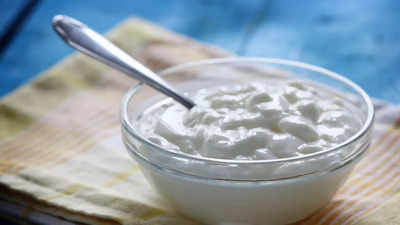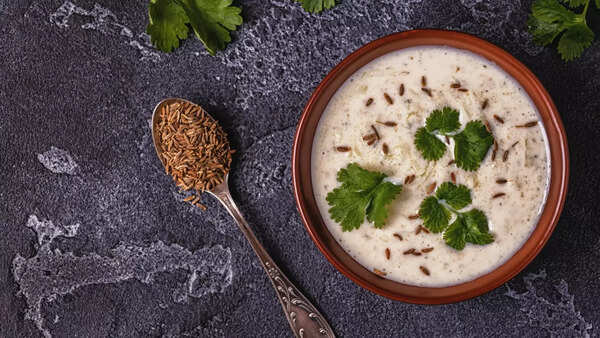
Curd or yogurt is a nutritious food that is loved for its versatility and health benefits. While many people think curd is only for summer, if consumed correctly, it can be a winter-friendly superfood too. Many people avoid winter curd Because they think it will make their cold, cough, or breathing problem worse. It is also said to increase mucus. Eating cold curd in winter may not be comfortable, so most people tend to switch to soup or hot drinks during this season. This is why you should include curd in your winter diet.
Enhance immunity
Curd is rich in probiotics, which protect the intestines by promoting the growth of beneficial bacteria. A healthy gut plays an important role in boosting your immunity, making you better able to fight off winter illnesses like colds and flu.

Improve digestion
A winter diet is often filled with greasy foods that may cause indigestion. Curd helps break down food and promotes smooth digestion. Its probiotic content helps prevent bloating and keeps your digestive system balanced during the colder months.
Rich source of nutrients
Curd is an excellent source of calcium, protein, essential vitamin B12 and riboflavin. This nutrient can help maintain muscle mass and bone density, which remains critical during the winter months when physical activity is still reduced in most cases.

Create healthy skin
Cold weather can make your skin dry and flaky. Consuming curd provides moisture and essential nutrients, promoting healthy skin from within. Additionally, the lactic acid content in curd helps rejuvenate the skin and combat winter dullness.
Helps with weight management
If you don’t want to miss out on the chance to gain extra body in the winter, curd is probably the best option. Curd contains less calories and helps control intermittent urges. The protein in it takes a long time to produce, so don’t create room for junk.
Help manage stress
The winter blues are real, and the stress of short days can take its toll. The probiotics in curd are known to help reduce stress and improve mood, making it a comforting addition to your winter diet. It can be customized for warm recipes.
Also read: Why is it difficult to curdle milk in winter? Simple tips on how to do things right
Customizable warm recipes
Although curd is usually served cold, it can also be lightly heated or used in winter dishes. Use it in soups, gravies, or marinades to bring comforting and nutritious flavor to your meals. Spiced curd, such as adding a pinch of turmeric or cumin, is another way to enjoy its warming properties.
Here are some surprising uses for curd
What does Ayurveda say?
According to Ayurveda, this curd is called ‘tamasik’ (heated) and has unique properties that need to be balanced during winter consumption. Curdled milk increases kapha energy, which can lead to mucus production, congestion, and even colds. However, when used with warming spices such as black pepper, cumin or ginger, it can be consumed in limited quantities during the day. Although Ayurveda recommends avoiding curd in the evening, it recommends opting for buttermilk or diluted yogurt instead of curd; it is easily digested and less likely to increase kapha.
Also read: Should you eat tofu in winter?
Tips for eating tofu in winter
- Avoid curdling at night as it can cause some blockage.
- Use warm curd or room temperature curd instead of cold curd.
- Use it with seasonal winter foods like jaggery or roasting spices for even more benefits.
Is tofu really cold? Ayurvedic doctor explains
Curd is more than just a summer coolant; it’s a potent winter superstar packed with good nutrients to support digestion, immunity, and more. Because it doesn’t get in the way of hot or cold dishes, curd can be an extremely versatile addition to your winter diet. So savor it wisely and reap its benefits all winter long!
(Image courtesy: Canva)







